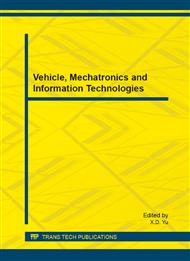p.1247
p.1256
p.1262
p.1266
p.1270
p.1274
p.1278
p.1282
p.1286
Research on Performance Evaluation Based on Fuzzy Analysis
Abstract:
How to evaluate vocation education performance is one of the difficulties and hot research fields for the researchers related. The paper presents a new model for evaluating vocation education performance based on the principle of analytic hierarchy process and fuzzy comprehensive evaluation. First an evaluation indicator system of vocation education performance is designed through analyzing the characteristics of vocation learners behavior; Secondly in constructing the comprehensive evaluation model for vocation education performance, analytic hierarchy process and fuzzy comprehensive evaluation are combined and two level fuzzy evaluation is adopted to satisfy the dynamics, subjective and transitional characteristics of indicators and improve evaluation accuracy. Thirdly datum from three vocational colleges are taken for examples to verify the validity and feasibility of the model and the experimental results show that the model can evaluate vocation education performance practically and can help vocation education service providers take corresponding concrete measures to enhance its education performance.
Info:
Periodical:
Pages:
1270-1273
Citation:
Online since:
August 2013
Authors:
Price:
Сopyright:
© 2013 Trans Tech Publications Ltd. All Rights Reserved
Share:
Citation:


